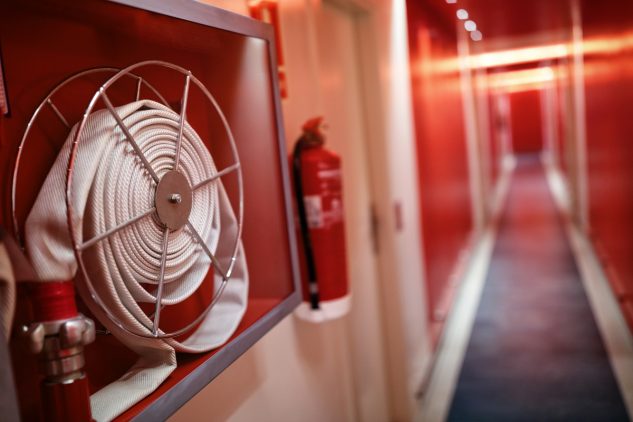Are Commercial Building Sprinkler Systems Mandatory?
Fire safety is highly important for owners and managers of commercial buildings. A fire in a commercial establishment could lead to serious injury or even death of employees and customers. Read on to learn more about sprinkler systems.
he requirement for commercial building sprinkler systems is typically governed by local building codes and regulations. Building codes are laws or regulations set by local authorities to ensure the safety, health, and general welfare of the public. The specific requirements for sprinkler systems in commercial buildings can vary significantly based on factors such as building size, occupancy type, and local jurisdiction.
In many places, especially in developed countries, building codes often mandate the installation of fire sprinkler systems in commercial buildings. The inclusion of sprinkler systems is generally aimed at providing a reliable and effective means of fire protection, minimizing the risk of fire-related injuries and property damage. Key points regarding commercial building sprinkler systems include:
- Occupancy Type:
- The occupancy type of the commercial building is a crucial factor in determining whether sprinkler systems are required. For example, high-occupancy buildings like hotels, hospitals, schools, and large office buildings may have more stringent requirements.
- Building Size and Height:
- The size and height of the building can influence the need for sprinkler systems. Taller buildings or those with larger floor areas may be subject to more stringent fire safety requirements.
- Building Codes and Regulations:
- Each jurisdiction has its own building codes and regulations, and these codes are periodically updated. Local authorities adopt specific editions of building codes, and compliance with the codes in effect at the time of construction or renovation is typically required.
- International Building Code (IBC):
- In the United States, the International Building Code (IBC) is widely adopted by many states and local jurisdictions. The IBC provides guidelines and requirements for fire protection, including the installation of sprinkler systems.
- Life Safety and Property Protection:
- Sprinkler systems are considered a critical component of life safety and property protection. They are designed to control or suppress fires until the arrival of the fire department, helping to prevent the rapid spread of flames.
- Insurance Requirements:
- Insurance companies may also influence the decision to install sprinkler systems. Some insurance policies offer discounts for properties equipped with fire sprinklers due to the reduced risk of significant fire damage.
It’s important for property owners, developers, and contractors to work closely with local building officials and fire authorities to understand and comply with specific sprinkler system requirements in their jurisdiction. Failure to adhere to these requirements can result in regulatory penalties and may impact the occupancy permit for the building.
As building codes and regulations are subject to change, it’s advisable to consult with local authorities or a qualified fire protection professional to ensure accurate and up-to-date information regarding the installation of sprinkler systems in commercial buildings.
Waterline Controls™
Our level sensors and controls aren’t just for use in residential potable water holding tanks; some of the other applications include cooling towers, sump pumps, wastewater, boilers, water storage tanks, and building fire protection water tanks.

